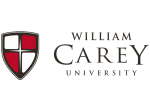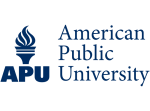 Maybe you have known that you wanted to be a writer since your earliest days—constantly writing your observations of the world around you and dreaming of when your first published novel would bring your name into the spotlight. Or maybe you recognize your natural talent for the valuable skill, and you’re curious about how you can use your talent in the professional realm. Online writing degree programs have been popular for more than a century. In fact, long before the Internet was created, some of the western world’s best-known writers earned their degrees through mailed correspondence with the University of London. Just like these writers of old, you too can take advantage of a distance learning program—but one that’s more technologically advanced. Today, distance writing programs are often conducted entirely online. As a writing student earning an online degree, you’ll learn how to craft compelling content that helps make you stand out as a professional wordsmith.
Maybe you have known that you wanted to be a writer since your earliest days—constantly writing your observations of the world around you and dreaming of when your first published novel would bring your name into the spotlight. Or maybe you recognize your natural talent for the valuable skill, and you’re curious about how you can use your talent in the professional realm. Online writing degree programs have been popular for more than a century. In fact, long before the Internet was created, some of the western world’s best-known writers earned their degrees through mailed correspondence with the University of London. Just like these writers of old, you too can take advantage of a distance learning program—but one that’s more technologically advanced. Today, distance writing programs are often conducted entirely online. As a writing student earning an online degree, you’ll learn how to craft compelling content that helps make you stand out as a professional wordsmith.
THE CAREER PATH
Regardless of what made you curious about online writing degree programs, rest assured that careers in writing offer more options than book tours for those who don’t have a novel idea in mind yet. Writing is the foundation of our communication. In fact, it’s one of the oldest forms of recorded language. And it is vital to communication across our society whether in entertainment or relaying critical information.
Careers in writing can be uniquely tailored to suit each’s preferences and professional goals. Some professionals focus their entire career on writing romance novels, while other writers explore different types of genres. Some professionals work for news media outlets, while others are passionate about researching the lives of others to write their biographical tales. There are many different paths to be explored, and many different types of careers that can begin with writing, no matter what other obligations you may have in your life. Some professionals choose to expand their current professional repertoire by adding an academic background in writing, while others may choose to dive directly into their writing education straight out of high school.
The United States Bureau of Labor Statistics (BLS) describes some common types of writers and authors:
- Copywriters are known for preparing advertisements that promote goods or services by producing jingles, themes, and slogans
- Content writers don’t specialize in any particular field but rather write on any topic — often as freelance writers
- Bloggers contribute their writing to a blog that may be dedicated to a particular subject, like fashion or health
- Novelists are the types of writers that you probably thought of first, the ones who come up with characters and storylines and publish them all in your favorite books
- Script writers may work for stage productions or television writing content that will be acted out for entertainment
- Speechwriters typically write speeches for public or prominent figures
According to the BLS, writers can start their career with a bachelor’s degree in a field that prepares them for the skills and dedication needed in the writing field. The average writer makes an annual salary of more than $60,000 and can count on decent job security since humans will always rely on writing to pass along information in one form or another. Even as technology continues to advance, the need for writers to produce online content will allow us to see continued job growth around 8% in the next decade.
Writers may also choose to specialize as technical writers, which are expected to be in high demand in the coming years, according to the BLS.Technical writers make complex information more easily understandable for the average person through materials like how-to guides, manuals, FAQ pages, and more. The expansion of technology and web-based services means that there is a growing need for professionals who can make the latest technology and applications more user-friendly and relatable. The job growth for technical writers is expected to be around 11% by 2026. Also, it’s an accessible and rewarding career. Most professionals can get started with a bachelor’s degree and work experience in their respective areas (like engineering or web design), and professionals make an average of more than $70,000 each year.
After many years of work experience in both writing and proofreading, professionals may look to become editors, who oversee the publication of written content from planning to final revisions. Like with writing, there are many different types of editors, including:
- Copy editors are responsible for proofreading content for errors, readability, and factual correctness
- Assistant editors work for newspaper publishers, TV broadcasters, magazines, or public relations firms and are responsible for particular subjects like local news, international news, feature stories, or sports
- Executive editors oversee assistant editors in their respective industries and generally have the final say over published content
Unlike writers and technical writers, editors aren’t expecting to see any job growth in the coming years, and the field is very competitive. On average, editors make around $58,000 each year, but the pay can vary greatly between industries and individual organizations.
WHO IS THE IDEAL CANDIDATE?
The most important aspect of professionals in writing careers is included in the name of the game: they must be expert writers. Although careers in writing will prepare professionals for any field, it takes dedicated professionals to be able to communicate, effectively, and creatively through well-organized writing. Critical thinking is another skill that is invaluable across the entire field of writing, for professionals to be able to think through and present content in a constructive form. Although many writing professionals may, at some point in their lives, identify as introverted bookworms, these careers often involve working in teams or with a variety of professionals and clients. Writers have to be able to sell themselves, their ideas, and their content.
WHAT SHOULD I LOOK FOR?
Fortunately, most careers in writing are easily accessible for those who are excited about spending time honing their skills. Most careers start out with a bachelor’s degree and some level of experience that is often offered through internships or extracurriculars like school newspapers. For professionals who have an established career or undergraduate studies in a different field, writing programs at all level can be a great compliment to your existing knowledge and experience and can offer an opportunity for a comprehensive workshop of critical writing skills.
Although there is no accreditation body dedicated to writing, the best universities will likely offer similar programs that are accredited by the Commission on English Language Program Accreditation (CEA). Developing professionals may be interested in looking into additional certifications that can add competitive edge to job applications and serve as validation of an individual’s expertise. For example, the Society for Technical Communication offers certifications for technical writers and the American Grant Writers’ Association (AGWA) offers the Certified Grant Writer® credential.
As an online writing degree major, your class load will focus on shaping your abilities to communicate. Courses will cover grammar, composition, editing and vocabulary. You may also study specific genres or writing styles. You should also be prepared to participate in feedback sessions on your own work and your classmate’s. Some online colleges may offer programs with a specific focus, such as professional or nonfiction writing. Other similar online degree programs include English and creative writing. Examine your career goals and personal interests to find the best writing degree for you.
COST
Our rankings reveal that the average cost for an online writing degree is between $30,000 and $50,000. Each program’s cost will vary dramatically depending on different requirements, fees, and stipulations. Click on a program below to view accreditation, tuition, and admission requirements.








